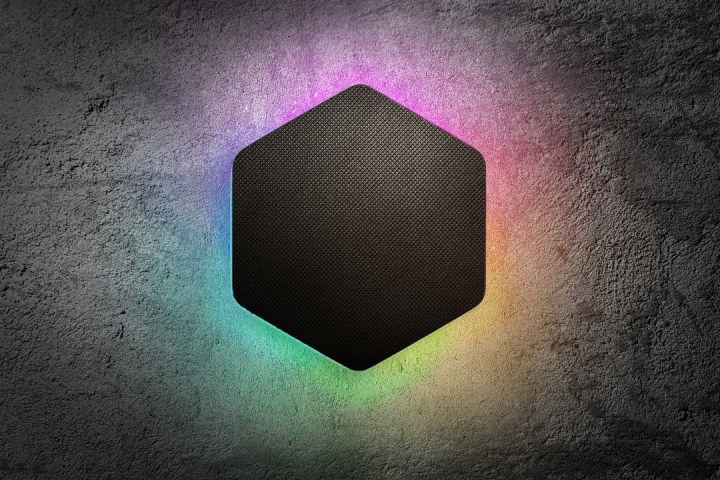
Zoe, from a company called Protonet, is aimed at changing that.
Zoe is designed to serve as the center for your smart home. The hub itself bears a simple design that can be customized to fit your décor. It is also aimed at being able to connect to every smart home product you might buy, supporting Wi-Fi, Bluetooth, Z-Wave, and even devices that connect through the cloud.
One thing that sets Zoe apart is that it can be completely voice-controlled. In fact, you can even teach it new things through your voice, such as to switch the lights on when you get home, or to switch on your music when you say a certain thing. The device understands a whopping 1,500 voice-commands, and will be updated to learn more commands as time goes on.
But what if you’re out of the room where the hub lives? Part of the system involves what the company calls “Voice Drops,” or little microphones that can be placed around your house and that connect to the main Zoe hub.
Protonet promises that Zoe is ultra privacy-aware. None of your voice data is sent to the cloud — it’s stored on 2GB of encrypted local memory, so even if it is listening to you, what it hears stays within your home. Not only that, but the Voice Drops can be turned off manually — if, for example, you’re having a particularly private conversation and feel a little uncomfortable with the device listening.
You may remember Protonet as the company behind the private servers that it claimed were NSA-proof. That campaign raised a hefty $1 million in less than an hour and a half, eventually going on to raise $4 million. All that, and it delivered on its promise, offering private servers to its customers in a timely manner.
If you’re interested in getting Zoe for yourself, head to the related Indiegogo campaign. At the time of this writing you could still get the hub alone for $169 or the hub with a Voice Drop for $249, however considering the fact that the campaign has already more than tripled its $100,000 funding goal, that may not last.
Check out the promotional video for Zoe below to get a better idea of what it can do.
Editors' Recommendations
- SimpliSafe is now using AI to prevent burglars from entering your home
- Ecovacs Deebot X2 Combo vs. Ecovacs Deebot X2 Omni: what’s new on the X2 Combo?
- Home Depot’s Hubspace is a great way to start building your smart home
- Google rolls out new Nest Cam features to Google Home for web
- Echo Hub vs. Echo Show 15: Which is the best smart home gadget?


